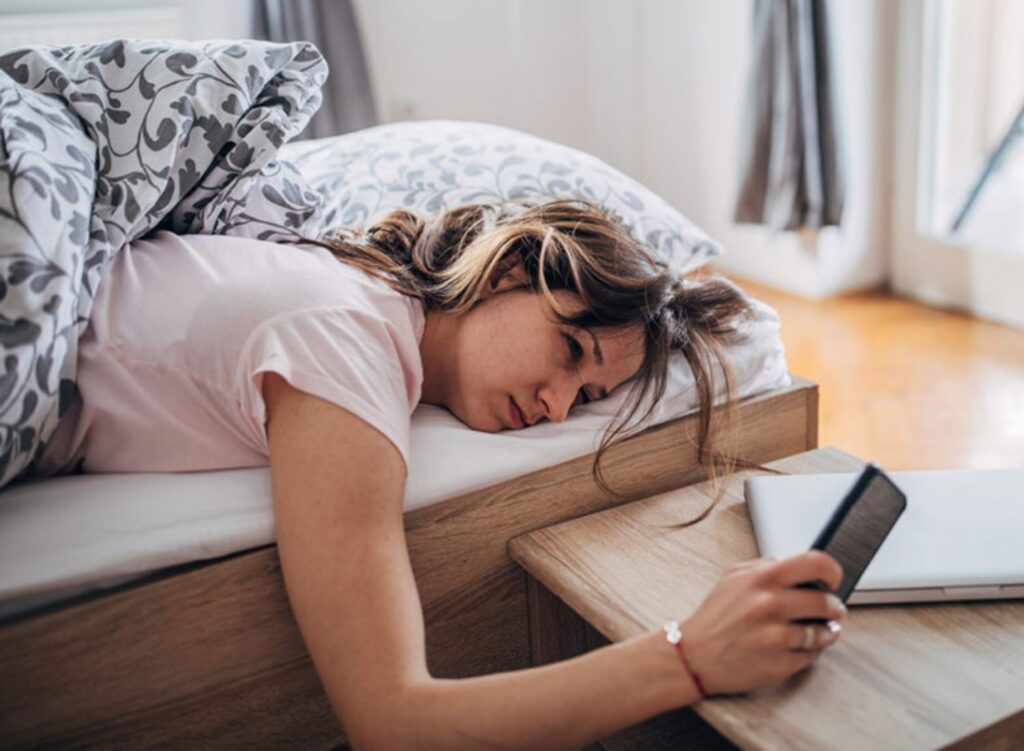Getting a full 8 hours of sleep a night is often a struggle. To make this matter worse, there are times when one continues to feel tired despite supposedly having gotten sufficient sleep. What are the reasons for feeling drowsy even after getting a night of proper sleep? We will look into these reasons so that you can make certain healthy lifestyle changes.
Although there are many reasons for feeling drowsy or explaining tiredness persists even after getting the recommended number of hours, one of the most straightforward explanations is that it could be due to your body requiring more rest than the average person. There are innumerable reasons for feeling drowsy after a sound sleep, but here are the four major ones.
Reasons For Feeling Drowsy After 8 Hours Of Sleep
1. Consuming Alcohol Before Sleeping

Alcohol can cause sleep deprivation and common sleep disorders if consumed in excess quantity. Many people mistakenly presume that having a nightcap makes achieving a more profound sleep more effortlessly, but the truth is different. Alcohol severely restricts the amount of quality sleep you get. Alcohol engages the body on alert.
Verywell Mind claims that REM sleep is required for restoration purposes. REM sleep is associated with dreaming and usually constitutes 25% of sleep. Its restoration process is necessary for the body, which can result in death if it is disturbed. When you drink alcohol, it stops you from having proper REM sleep, making it unable to get back to sleep. Therefore, it makes you feel drowsy after waking up.
2. Consuming Caffeinated Drink Late In The Day

Caffeinated drinks such as coffee, tea, or sugary drinks like cola, can keep your brain alert and “buzzed” for up to six hours. Drinking caffeinated beverages past midday is ill-advised if you’re trying to optimize your body’s ability to enter a deep sleep come nighttime.
Caffeine in the coffee makes you feel groggy after a night’s sleep as it blocks adenosine receptors in the brain. Adenosine is responsible for the sleep-wake cycle. It binds with the brain’s receptors, making it less active when you are about to sleep. When you drink coffee before bed, caffeine binds with adenosine receptors instead, making you feel drowsy.
Therefore, you can tackle this one reason for feeling drowsy by avoiding drinking coffee before you sleep. Instead, consume caffeine-free drinks that are healthy for the brain and the body.
3. Using Digital Devices Before Bedtime

Nighttime is dedicated explicitly to having proper rest after an exhaustive workday. Staying on your mobile device when it is close to bedtime has a detrimental effect on the quality of sleep you get at night. Your body needs rest, especially your eyes. When you stay on the phone for longer hours, it disrupts the relaxing time of your body. It affects your sleep cycle and inhibits restorative sleep. Therefore, we need to practice digital detox to stay healthy.
4. Exercising Late In The Day

Engaging in intense physical activity before sleeping affects your sleep quality; it raises your adrenaline levels and increases your heart rate and core body temperature. As a result, your body may not be able to relax sufficiently to enter the phase of restorative sleep characterized by a lower core body temperature and a slower heart rate. The more vigorous your exercise is, the more likely it will affect your sleep. If you must do something, stick to less intense activities (e.g., yoga) and always have a cool-down session.
Now, you know the reasons for feeling drowsy even after 8 hours of sleep. These activities can affect your sleep quality at night. The natural solution to daytime fatigue would be to abstain from doing these activities. However, if your condition is a recurring one despite adhering to the guidelines mentioned above, you may be experiencing a more severe sleep disorder. Therefore, simply changing your lifestyle habits will not be enough first to treat the underlying medical condition.







